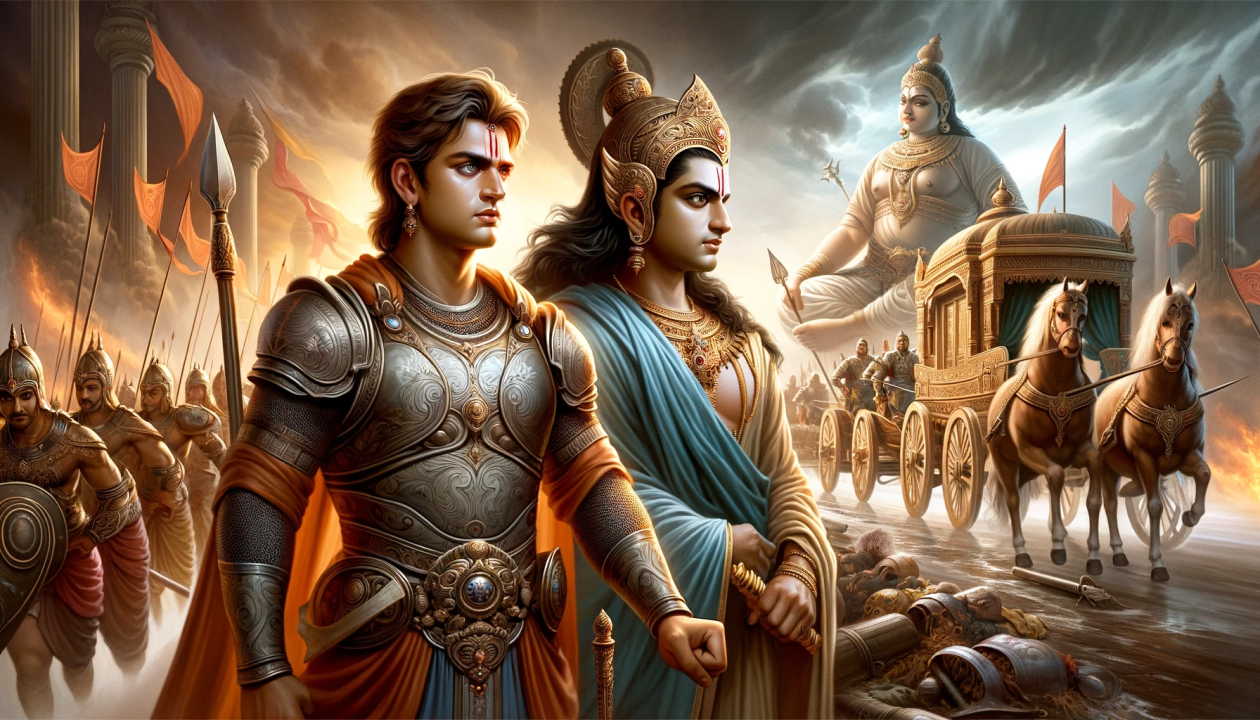
Resilience and Recognition: Lessons from Karna and Krishna in the Mahabharata
In Indian mythology, the Mahabharata is an epic saga, weaving stories of duty, honour, and destiny. At its core is Karna, a character who embodies resilience, ambition, and the human desire for recognition. Born to Princess Kunti and the Sun God but raised as a charioteer's son, Karna's life is a constant battle against societal norms and a burning desire to forge his path.
Karna, skilled as the Pandavas, faced societal biases where lineage overshadowed merit, denying him equal opportunities. His vow to outdo others was not just a challenge but reflected his unyielding ambition. This aligns with Buddha's teaching: "Your work is to discover your work and then with all your heart to give yourself to it." Karna's dedication to his craft echoes Steve Jobs' principle: "The only way to do great work is to love what you do."
However, Karna's journey was marred by an inferiority complex, overshadowing his strengths. This echoes Peter Drucker's insight: "Management is doing things right; leadership is doing the right things." Karna often lost sight of the bigger picture, caught up in proving himself.
Contrastingly, though riddled with challenges, Lord Krishna's life exemplified positive action. Separated from his birth parents and raised modestly, he faced early threats without succumbing to victimhood. Krishna embodied Steve Jobs' philosophy, turning challenges into opportunities and focusing on solutions.
Karna and Krishna's divergent paths highlight the impact of attitude. Emplaced in his hardships, Karna contrasted with Krishna's agile and foresighted navigation. Henry Ford's advice, "Do not find fault, find a remedy," encapsulates their differing approaches to life's challenges.
Krishna's life mirrored Albert Schweitzer's words: "Success is not the key to happiness. Happiness is the key to Success. If you love what you are doing, you will be successful." His approach, in line with Nelson Mandela's belief, "The greatest glory in living lies not in never falling, but in rising every time we fall," showcased resilience.
Juxtaposing Karna's journey with modern management insights reveals much. His ambition, akin to Abraham Lincoln's, "The best way to predict the future is to create it," inspires leaders. However, his story cautions against inferiority complexes and highlights focusing on strengths, as Charles Darwin noted: "It is not the strongest of the species that survive, nor the most intelligent, but the one most responsive to change."
Karna and Krishna's stories demonstrate the profound impact of attitude and adaptability. Their lives, embodying Darwin's observation about change, emphasize the importance of a positive outlook.
Eleanor Roosevelt's words, "To handle yourself, use your head; to handle others, use your heart," resonate in Karna's story. His life, marked by personal struggle and complexity, transforms into a powerful symbol of the human quest for dignity and recognition. It illustrates our relentless pursuit of goals and overcoming hurdles, regardless of what fate or society imposes.
Commerce and Management Faculty
4moExcellent. Very Nice article